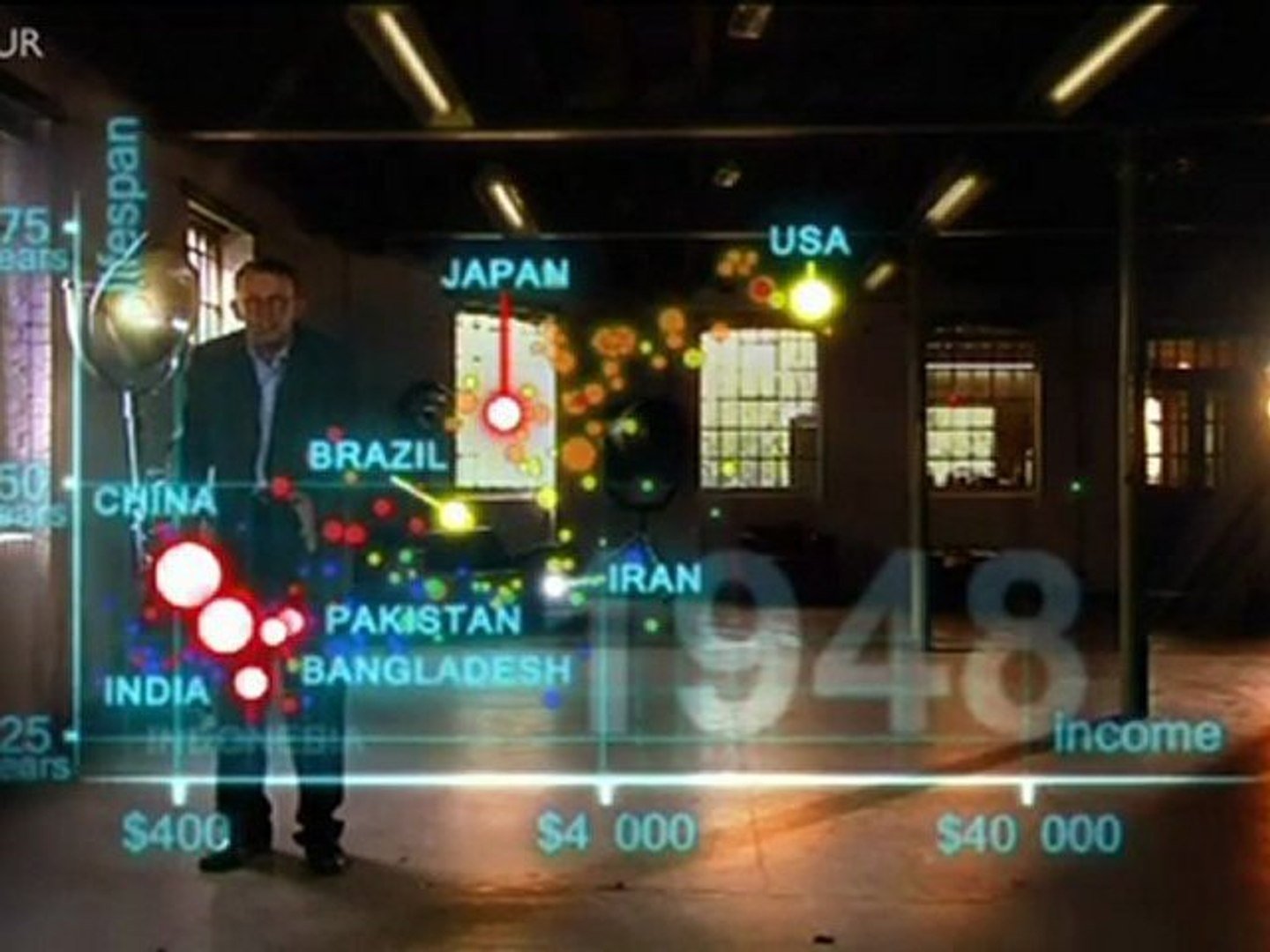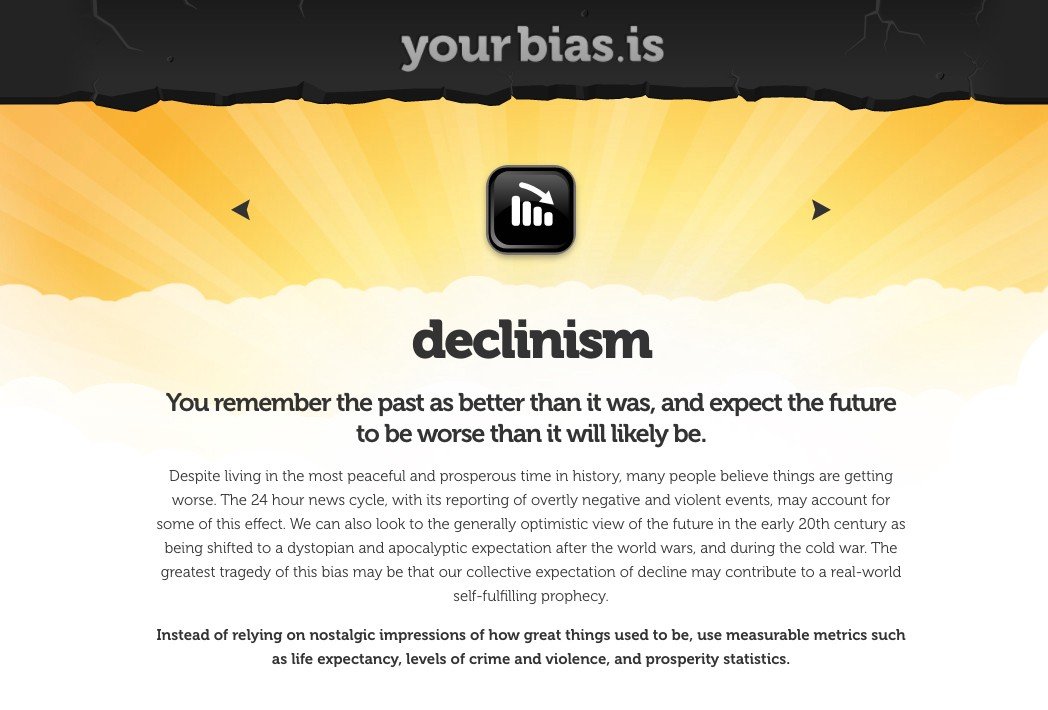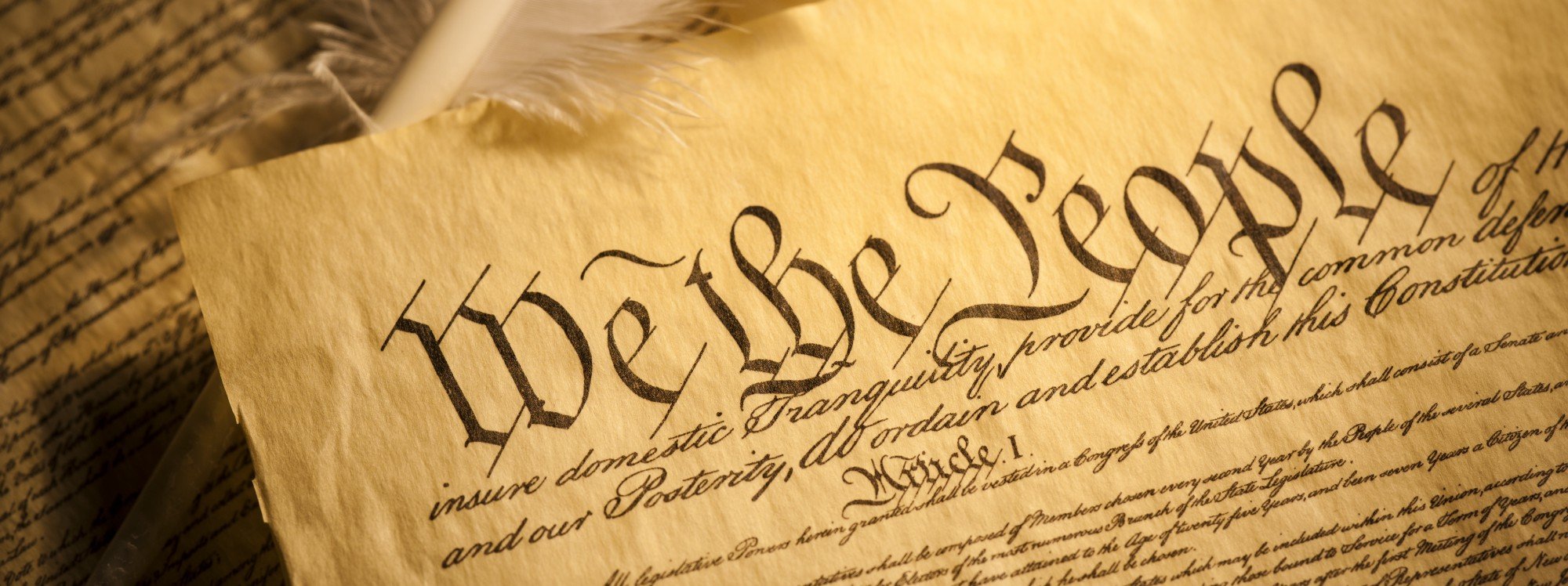Was America Ever Great?
Here in Australia we don’t much like tall poppies. If someone thinks they’re better than everyone else, we feel a deep compulsion to cut them back down to size. So the USA’s combination of being the unrivalled global superpower while also not being particularly humble about it, meant that when I was growing up there was a palpable sense of antipathy towards America, and the ‘Americanization’ of our own culture in particular.
America has a few other notable problems. It was, for instance, created via colonial genocide, prospered through the exploitation and oppression of enslaved people, has enacted violent foreign policies against sovereign nations with impunity, and suffers a multitude of serious internal issues including widespread institutional racism, extreme wealth inequality, the highest incarceration rates in the world, an education system in decline, the erosion of democratic and institutional norms, volatile political polarisation, and an ever-growing wave of anti-intellectual populism.
Hmm
Despite all this, I think that America truly was great, is great, and that its continued greatness may be the single most important determinant of our future as a species.
First, though, let’s get our facts straight. Most people think things have been getting worse for quite a long while, but on pretty much every objective metric including life expectancy, violent crimes, general health, and more, the USA has been getting increasingly and substantially better for the past several hundred years. For a short and enlightening demonstration of this quantified reality, which so starkly contradicts prevailing pervasive beliefs, see this short video below featuring the late, great Swedish statistician Hans Rosling tracing the measurable progress of 200 countries over the past 200 years.
Click through to watch on YouTube
There are many reasons for this dissonance between what we believe and what is factually true, but there are two in particular which help to explain it. First, there is the rosy retrospection bias — a cognitive bias we suffer wherein we tend to remember the past as better than it actually was, and especially to romanticise our own halcyon days of youth. This is unsurprising seeing as our youthful years tend to be the best of our lives, or at least the time in our lives when everything felt possible.
Secondly, our perceptions are distorted by the amplification of bad news through various media. We have evolved to be extremely sensitive to threats — when we sense a threat, our sympathetic nervous system reacts automatically with a flood of unbidden physiological prompts to push our behaviour to a fight-or-flight response. So when we see the worst, most violent, terrible things happening all over our country and the world at large, as an immersive audio-visual experience, we feel on a visceral level as if these terrible things are all happening in our own neighbourhood. Violence, extreme poverty, and preventable deaths have been declining over the decades, but we increasingly perceive them as becoming more common because reporting of them has become more prolific, and is reported with ever-richer media.
If you take the bad incentives that exist for all forms of media to amplify conflict, violence, and hyperbolic divisive sensationalism, then add to that how we individually and collectively amplify the importance of threats, then add to that the rosy retrospection bias, you get a potent psychological force which manifests as the phenomenon of declinism.
A mindset of declinism causes us to think the world used to be better than it was, while also expecting it to be worse than it is rational to think it might be in the future. However there’s a cruel irony insofar as perceiving and expecting things to decline may become something of a self-fulfilling prophecy. If you feel threatened and worried, you tend to act defensively, causing others to feel justifiably threatened by you, which creates various downward spirals of fear and aggression.
While these biases distort our thinking irrationally, there are also some very real and valid threats which serve to enable these biases, as well as add to the overall sense of declinism. For example wealth inequality has been getting substantially worse, life expectancy (pre-covid) in the USA is going backwards for the first time in several hundred years, institutional racism and demographic cultural changes are feeding into an increasingly polarised and heated political climate, bipartisan neoliberalism and the weakening of unions in the USA has politically and economically disenfranchised the working and lower-middle classes, and there exist myriad existential threats such as climate change, artificial super-intelligence, and the ever-present threat of nuclear annihilation which are all far from irrational things to be worried about.
So what’s the real picture then? Was America ever great? Well, it’s a mixed bag and it always has been. Things have been getting better for a long time and the USA remains the most prosperous and powerful country in the history of the world, but there are both historical and contemporary critical counterpoints to the peace, prosperity and other positives that the American Experiment has helped to bring about.
However, the reason I think America was, is, and ought to be great in the future, is quite separate and upstream to these more quantified measures.
What was truly great about America and made it a shining light for the rest of the world is that it was the political and cultural embodiment of the values of the enlightenment. These ideas and ideals are not America’s alone, they belong to humanity, but it was the American revolution and the founding of a new republic based on these precepts that precipitated a global shift away from thousands of years of aristocratic and monarchistic tyranny to a world dominated by political and economic systems of open egalitarian freedom, democracy and liberty.
Or, hear me out, maybe it should be ‘I, the person’?
It’s difficult to imagine just how unrealistically utopian such a shift might look to a peasant living in pre-revolutionary France, or a serf in the feudal system in England during the Middle Ages. That not only could a revolution against the monarchistic aristocracy and church — whose power was effectively absolute — be possible and successful, but that it would also be sustainable, and help to create several hundred years of mind-boggling advances in technology, unprecedented improvements in standards of living, and global emancipation from poverty and suffering for billions of people.
In-bred tyrants: unlikely to make things cool.
It’s also difficult for us to appreciate from our perspective just how progressive a shift this was. America’s founding fathers were radicals who sought to create a political system which might guard against tyranny in all its forms, and ensure that liberty was protected – in particular from the power of the church and the state, but also from fellow citizens and populist demagogues.
Precepts such as equality, freedom of speech, the right to vote for political representation, due process under the law, and many more that we take for granted in countries all over the world, can be traced in many meaningful ways to the American revolution and the formation of the United States of America under the US Constitution and its addendum Bill of Rights.
What’s important to understand, though, is not that the US Constitution is some kind of holy writ deserving of worship, nor the founding fathers infallible demigods, but rather that the moral principles and philosophies of the American experiment are what ought to be exalted. And while we can use terms such as ‘liberty’ and ‘equality’ to describe these kinds of ideas relatively well, we have also seen how such labels can themselves become contorted to fit various ideological dogmas and agendas.
What might be more useful is to take a first-principles perspective: the underlying principle of these enlightenment values to which the USA was the political embodiment of, was a distribution of power.
In terms of political power, democracy meant that the power which previously belonged to kings, clergy and nobility was evenly distributed such that every white man had as much political power as any other. And because it was the principle that was important, rather than the letter of the law, we saw a furthering of this principle through the civil war and suffrage movements which won voting rights for black people and women respectively. In this way those who fought for the emancipation of slaves were patriots unto the principles of America, while the confederates who sought to consolidate their own power and deny political power to others were, and are, enemies of what made and makes America great.
Similarly the so-called ‘American Dream’ was a form of economic power distribution and mobility in which one’s work and merits could afford one an equality of opportunity. No matter who you were, where you came from, or who you were related to, if you worked hard and helped to create something of value then, in America, you could enjoy a better life. Conversely, the idea of monopolistic capitalism in which only the rich get to enjoy access to good schools, and have the exclusive means for economic opportunity, is antithetical to the underlying values of the founders’ vision for a truly free nation state. It is also, importantly, antithetical to a healthy economy.
Ideas like ‘individual liberty’ can become easily misappropriated because they seem to speak directly to these principles of equality and freedom, but when a family becomes financially destroyed by medical bills through bad luck, they aren’t enjoying ‘individual liberty’ at all, but rather a form of systemic economic oppression in which large medical corporates consolidate power while working people lose it. Such a situation results in the opposite of liberty. There is also something perversely Orwellian about invoking the nomenclature of freedom to justify and normalise the enslavement of working people living in abject poverty in the most prosperous country in the history of the world.
What was, is, and could be great about America in the future is a level playing field where every person is not just guaranteed basic human rights, but also an equality of power. Since its inception, there have been forces within the USA which have been attempting — to varying degrees of success — to mitigate the distribution of political and economic power, and instead further concentrate it in the hands of the already powerful. For example after the civil war was won with the express purpose of liberating black slaves, the Jim Crow laws were enacted to suppress black voting rights and equality; and intentional voter suppression for minority communities continues to this day.
A distribution of power does not happen naturally, it requires intentional and considered systems design, including provisions for vigilant, adaptive reinforcement. That’s what the American Constitution sought to do, and it was indeed well-considered and well-designed insofar as it used the separation of powers between the executive, legislative and judicial branches to help mitigate the potential for a concentration of power; applied the federalist model of states having independence from the federal government to the same end; and through the amendments in the Bill of Rights it ensured protections for individual liberties through rights such as freedom of speech and assembly. Democracy itself also helps to redistribute power if and when particular political entities act against the interests of the many for the benefit of the few (or at least it has in the past, and continues to do so to at least some extent).
It’s important that we distinguish between the principles that underpin systems, and the mechanisms that are used to enact those principles — we often mistake the trappings for the substance. For example, it was not capitalism that made America great, it was this distribution of powers to the many, and the protection of those powers under the law. To be clear, industrial capitalism and free markets have indeed been instrumental in very real ways to bring prosperity to literally billions of people around the world, but this includes nations such as China where power is very much concentrated with the state, thus it is not capitalism nor laissez faire markets which we ought to value quite so much as the precepts of economic opportunity, mobility and liberty through which an open, well-regulated market-based economy might function.
In contrast to the concentration of power unto the state in China, the USA has seen a consolidation of economic power with the rich. Both are bad for the same reason that they violate the principle of distributed power. Ever-widening wealth inequality doesn’t just hurt poor people, it undermines the entire system: when economic power is consolidated and concentrated, it means that competition and innovation are stifled, while exploitation and monopolistic corruption are at liberty to flourish.
Similarly universal healthcare has been cast as undermining the ideas of freedom and liberty that the USA was founded on, however, the predatory profiteering of the current system is what demonstrable does undermine those principles, because it results in a concentration of power rather than a distribution of it. One cannot enjoy the liberty to pursue happiness if one is crippled by debt and/or just physically crippled. Here in Australia we all receive world-class healthcare regardless of how much we earn, and almost no one is financially ruined by medical bills. Everyone paying for healthcare via taxes is simply more efficient and healthy for society than utilising for-profit private insurance corporations to administer people’s access to medical care. Countries with universal health care aren’t just physically and socially healthier, they’re economically healthier as well, because healthy workers are much better able to contribute to the common good.
Everyone becomes so focussed on attacking the state, or big corporations, or the left, or the right, that we forget who the true enemy is, and it’s none of these. We have a common enemy that can hide in the shadows of any of these trappings without revealing itself, and thereby deflect attention away from itself. The enemy isn’t a particular entity unto which power has become concentrated, but rather the concentration of power itself.
What’s so tragic about the current state of polarised affairs, is that if the different sides understood just how much common philosophical ground they shared, much of our conflict would be nullified.
The amplification effect of our echo chambers and the cult-like tribalism they create, deliver us to the incendiary conclusion that we are all so very divided. But if we exercised the principle of charity unto each other we would be able to see that we’re all talking about this same foundational principle of wanting to ensure the distribution of power.
Each side thinks that the other wants to consolidate power, while believing that their side wants to distribute it more fairly. From the perspective of someone on the right, they see the left wanting to consolidate power with urban elites and the state; while for someone on the left they see the right as advocating for the unfair consolidation of power with corporations and rich / white / straight / Christian / men.
On every political axis and issue, a strawman who wants to unfairly consolidate power is a powerful and effective one. What makes them even more powerful, especially in the internet age, is that it’s relatively easy to find a minority of ideologues on any extreme who will serve as real-life strawmen to make the caricature tangible and thus tar and mar the less committed and vocal majority in each camp.
The below political compass meme, while somewhat simplistic, shows an instructive juxtaposition of how we all too often construct hyperbolic strawmen in each quadrant versus a more representative ‘principle of charity’ understanding of others’ beliefs, values and intentions.
Props to https://www.reddit.com/user/Zeus894 for the original version of this meme
It doesn’t matter where you fall on the political spectrum, you will likely agree with pretty much all the steelmen above and disagree with all the strawmen. And that won’t necessarily make you a centrist either, because it’s more complicated than all that, but the point is that if we can exercise good-faith charitable interpretations of each other’s perspectives we will be much more likely to arrive at a shared understanding.
Politics has always been framed as a fight, when it should be a project of spirited but collaborative cooperation. Beneath the surface of our disagreements we all want very similar things, and we all share very similar values. By focusing on amplified versions of our disagreements, we forget our common ground and the common good.
There is a grave danger that in vilifying each other, we will also dehumanise each other, and history warns us that terrible, horrific, and violent things await us down that path.
So, on behalf of the rest of the world, I would like to ask you to remember the genesis of your nation’s creation, the spirit of your founders’ intent to share and distribute power equally amongst all citizens, and to approach each other in good faith, even when it isn’t reciprocated (especially when it isn’t reciprocated).
It might seem like unrealistic optimism to think that at this point in time we can bridge our political gaps, but consider the efficacy of just this one black man who has converted hundreds of KKK members out of racist ideology simply by finding common ground, and exercising good-faith compassionate understanding. He didn’t have to give up his beliefs nor compromise on his ethics, instead he simply listened and fostered human connection. He understood that the problem wasn’t really a conflict in values, but simply a lack of understanding. Instead of punching nazis, he very effectively persuaded them to stop being nazis.
The choice you have is whether to take the easy option of adding your voice to the self-reinforcing chorus of the echo chamber on your own side, or to do the more difficult, complicated and thankless work of finding common ground with people with whom you disagree.
United you stand, divided you fall.
This article was originally published on Medium








